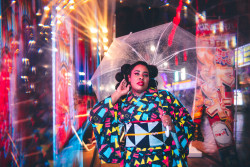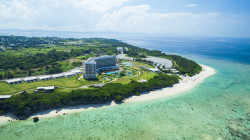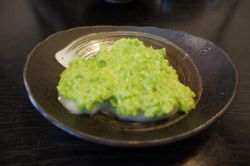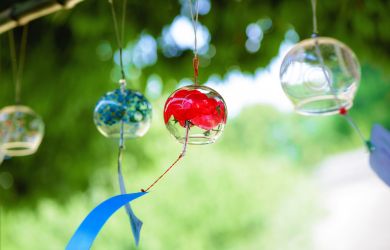
Originally published on metropolis.co.jp on November 2008
Most people head to Okinawa for the surf and sun, but the next time we hop on a plane to the southern islands, we’ll be going for the food. That’s what we’ve been thinking ever since a visit to Harajuku’s lively Churari restaurant.
Churari hums with a friendly buzz thanks to the OLs and salarymen who come to unwind in pairs and small groups. You won’t find Cat Street hipsters here—this is a spot for twenty- and thirty-something professionals to drink and eat in a casual setting.
Churari’s menu is full of island-inspired dishes, as well as can’t-miss seasonal specials and a deep list of Okinawa’s most famous liquor, awamori. Even if you’re familiar with such staples as goya chanpuru and rafute, you’d still do well to try them here—we didn’t notice any Okinawan obasan manning the stoves, but the food certainly tasted as if there were.
Churari’s izakaya-like list of appetizers, main dishes, noodles and desserts are all priced around ¥1,000 or less. If you’re unfamiliar with Okinawan cooking, the staff are happy to make recommendations, though their English is limited and the menu is Japanese only. The pictures help in that regard.
During a recent visit, we were greeted with an otoshi of mozuku seaweed flavored with ginger, a dish that the Japanese describe as neba-neba but which we call slimy (in a good way). That was followed by an order of jiimami dofu (¥440)—a cube of sesame-flavored, housemade tofu that had the consistency of cream cheese. Heavenly. Next up were tsukune chicken meatballs (¥620), slightly crunchy and served with a soft-boiled egg yolk. We decided to stay away from the Spam dishes, which include a dip that combines the meat with avocado, Camembert cheese, mushroom and tomatoes (¥620).
Churari’s chanpuru is a delight, with a smoky flavor and lots of egg, ham and moyashi to cut the bitterness of the goya (¥740). A friend’s recommendation of Okinawan soba (¥714) was spot-on—the dish was brimming with wakame, negi and the super-tender Okinawan pork known as rafute.
We washed these dishes down with a glass of the island’s serviceable Orion beer (¥714), then moved on to the awamori list, which features some two dozen varieties available straight or on the rocks, warm or chilled. If you’re a first-timer—or put off by strong liquor—you might want to consider an awamori cocktail (all ¥880), many of which are made with shikuwasa, a citrus fruit native to the islands.
Churari’s interior, though small, doesn’t feel cramped. Island-themed knickknacks grace the shelves, and a series of semi-private dining nooks are perfect for a date. If possible, snag a table in front of the large windows, which feature high-backed couples seats that offer their own semblance of privacy. The twinkling lights of Tokyo won’t remind you of Naha, but the food on your plate will.









